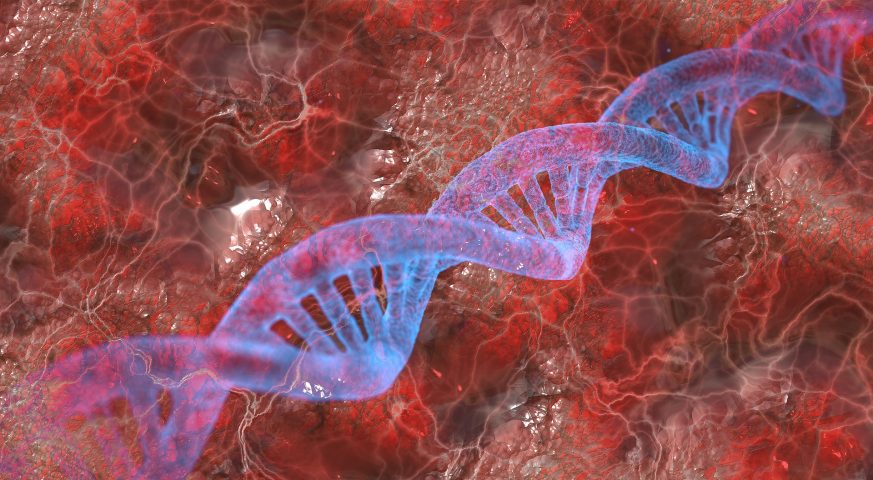
It may be only due to the sudden and drastic food restriction, but the fact is that, upon submitting to stomach reduction surgery, morbidly obese individuals suffer genetic transformations that help give them back their health. The conclusion is based on the findings of a study by researchers of USP’s Ribeirão Preto School of Medicine (FMRP) published in the June edition of journal Diabetes, from the American Diabetes Association (ADA).

A member of the FMRP team, biomedical scientist Rafael Ferraz-Bannitz reports that the group observed “genetic modifications that occur in the first six months after the bariatric surgery” that may explain the beneficial effects of the procedure, such as loss of body fat, metabolic improvement, and lipidic and glycemic control.
To reach this conclusion, the researchers treated and monitored a group of 13 obese but non-diabetic women from preoperative care until the sixth month after the bariatric surgery. They used the gastric bypass technique, also known as the Roux-en-Y gastric bypass or Capella procedure. The procedure is one of the most performed in the world and, according to the researcher, is one of the treatment options that are “most effective and durable to reduce the adiposity and control the abnormalities of the metabolic syndrome in patients with severe obesity”.
The researchers wanted to observe the impact of the surgery on the fatty tissue (fat), given that several studies showed the beneficial effects that the procedure promotes on the metabolic parameters (weight loss, levels of glucose, lipids, body mass, and BMI). For this reason, they performed genetic analyses on samples of this tissue taken at the moment of surgery as well as after three and six months of the surgical procedure.
Return to a healthy genetic pattern
The objective of the study was to assess the effect of bariatric surgery at the genetic level in the fatty tissue in the acute phase after the surgery. And the researchers observed that some genes of the fatty tissue presented a different adaptive response in each post-surgery phase. “We found a dynamism of the gene expression after three and six months of bariatric surgery”, says Ferraz-Bannitz.

These genes, the researcher reports, are capable of controlling “the inflammatory process, the production of proteins, and the response to oxidation in the fatty tissue”, explaining that, after the surgery, they assume expressions similar to the “gene pattern of healthy individuals”. Such data is interpreted by the researcher as a “return of the fatty tissue to a metabolic state closer to the healthy one”.
The importance of such genetic discoveries is explained both by obesity-related diseases – such as diabetes and cardiovascular diseases – and the number of bariatric surgeries performed in Brazil. According to the Brazilian Society of Bariatric and Metabolic Surgery, in 2018 alone, nearly 64 thousand of such surgeries were performed in the country.
The study, conducted at FMRP and the General Hospital of the Medical School of Ribeirão Preto (HCRP), is part of the clinical works advised by professor Maria Cristina Foss-Freitas. Besides Ferraz-Bannitz and Maria Cristina, the team of researchers is integrated by Caroline Welendorf, Priscila Oliveira Coelho, Wilson Salgado Jr., Carla Barbosa Nonino, and Rebeca A. Beraldo.
Link to the article: https://doi.org/10.2337/db20-2008-P
More information: email rafael.ferrazbannitz@joslin.harvard.edur
